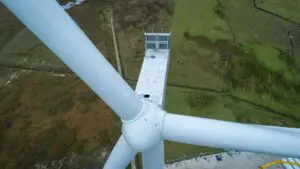We know that more and more Australians are installing rooftop solar in an effort to counter rising electricity bills – last year, households around the nation installed more rooftop solar than Germany, the world’s solar leader – but could rising power prices also be driving them to look for an alternative to grid connection?
Yes, says CBD Solar manager, Jeff Bye, who argues that, with power companies said to be “gold plating” networks by over-investing in poles and wires, more people are looking for answers on how to “ditch the grid” entirely – a move that could be achieved through a combination of solar power and energy storage.
“If people install solar panels and battery storage, they only need the grid as a backup supply,” Bye said in a statement released today.
“Improvements in technology, being driven by the auto industry, are leading to more efficient and effective battery storage which works well with what can be intermittent production of electricity from solar power,” Bye said.
According to CBD Solar, the average cost of energy is now between 20 and 30 cents a kilowatt hour, reaching 43 cents at peak – and according to Treasury estimates, some 51 per cent of this cost is from network and distribution costs.
Solar energy, meanwhile, costs between 5 and 7 cents a kilowatt hour to produce – a level that is applicable over the lifetime of a solar system of around 25 years.
Bye – whose company has operations in wind, solar, and energy efficiency, including large-scale projects in Asia, Europe and the US – offers the example of his own 18-panel solar system with battery back-up, recently installed at his family home.
Bye says the plan with this solar/battery system system – the panels produce 16kWh of clean energy per day, which virtually matches the total daily consumption of the house – was to receive a quarterly bill recording zero kWh consumption, leaving a network access charge of about 50 cents a day as the only payment.
“This system will pay for itself in around five years and after that, we will have free electricity despite the effect of the carbon tax and all the other costs from electricity distribution through poles and wires,” he said.







